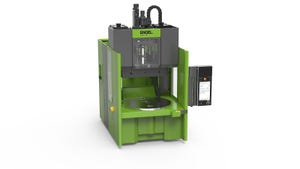Berry Global Signs Deal with Borealis for Supply of Circular Polyolefins
Investments in chemical recycling with partners like Borealis are critical to meeting the global commitment of achieving net-zero emissions by 2050, said Berry Global.
May 4, 2021

Berry Global has entered into an agreement with materials supplier Borealis, giving it access to circular polyolefins made from chemical recycling. This will help Berry achieve its commitment of using 600 million pounds of post-consumer recycled (PCR) content by 2025.
Chemical recycling, also called advanced recycling, makes it possible to use material, which would otherwise be discarded as waste and destined for incineration or landfill, as feedstock for the production of polyolefins. Continually increasing demand for these processes is a critical component in the economics of achieving a circular economy.
Last month, Borealis announced a new project to secure an increased supply of chemically recycled feedstock for the production of more circular base chemicals and polyolefin-based products. A feasibility study for a chemical recycling unit to be established at the Borealis production location in Stenungsund, Sweden, is now underway. Funded in part by a grant awarded by the Swedish Energy Agency, the study is being carried out with project partner Stena Recycling.
Subject to a successful feasibility study and final investment decision, operations are expected to begin in 2024. The unit will help accelerate plastic circularity by enabling the replacement on a larger scale of fossil-based feedstock by integrating more chemically recycled feedstock via the mass balance model. Borealis Stenungsund has been certified to ISCC Plus since February 2021.
Borealis will also co-operate independently with Fortum Recycling and Waste on a project involving the sourcing of plastic waste for the chemical recycling unit. Fortum will apply for public funding for a feasibility study to this end, said Borealis’ announcement.
Borealis is driving collaborative projects in Sweden to increase supply of feedstock from chemically recycled synthetic crude oil offering the same quality as olefins produced from fossil fuel–based crude oil, said the company. This allows for the production of high-end polyolefin-based applications, including healthcare and food packaging materials that are subject to stringent quality and safety regulations, explained Borealis.
“Investments in chemical recycling with partners like Borealis are critical to Berry and our customers as we collaborate across the value chain to meet the global commitment of achieving net-zero emissions by 2050,” said Jean-Marc Galvez, President of Berry’s Consumer Packaging International Division. “Plastics are a critical solution as we advance toward circularity. [Plastic is] the preferred substrate for its lower greenhouse gas emissions, [and] Berry’s design expertise with circular resins is an important factor in the journey to demonstrate the value of giving plastic multiple lives.”
Berry will use the polypropylene from chemical recycling to manufacture food packaging for longtime global brand owners, creating a package made exclusively from resins derived from chemical recycling. The package will be manufactured at one of Berry’s existing European manufacturing facilities and will launch in the upcoming quarter.
About the Author(s)
You May Also Like




